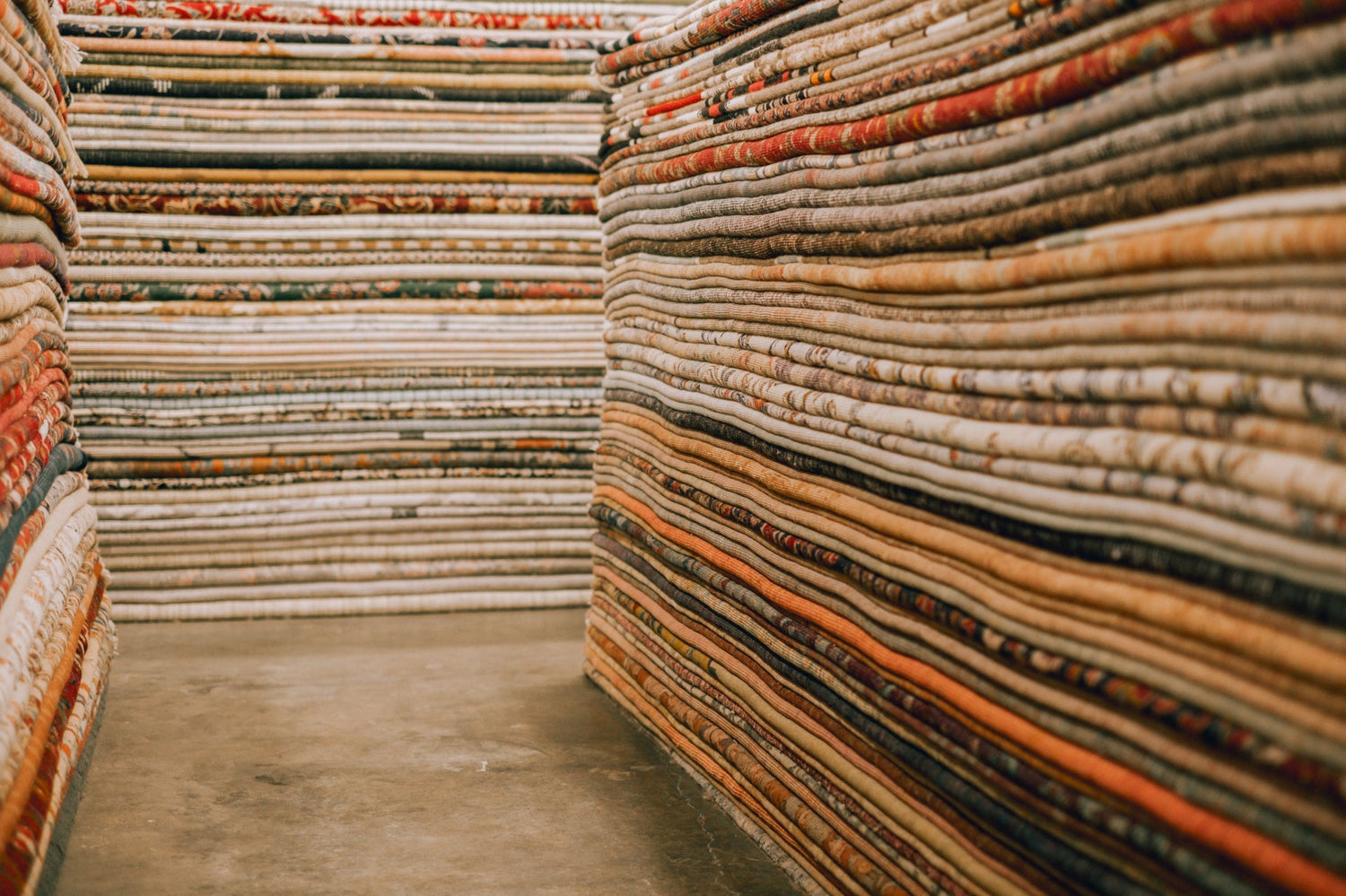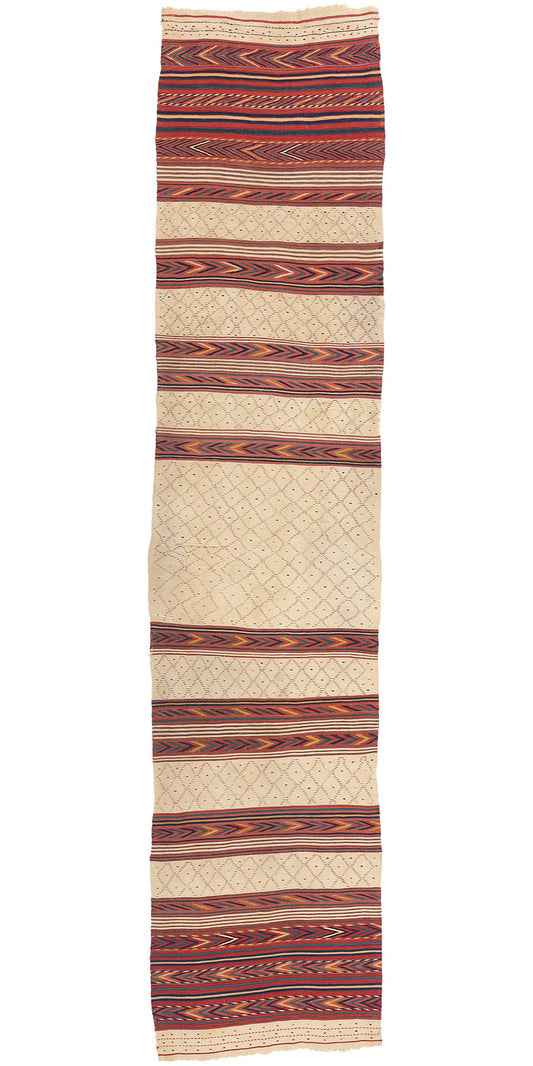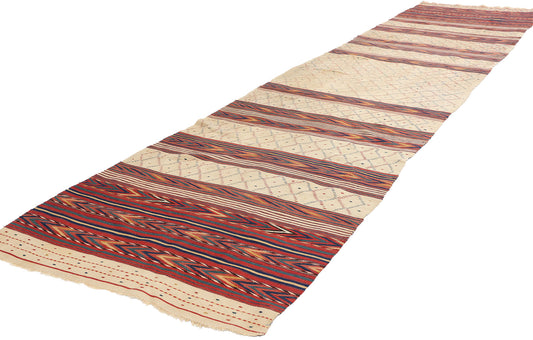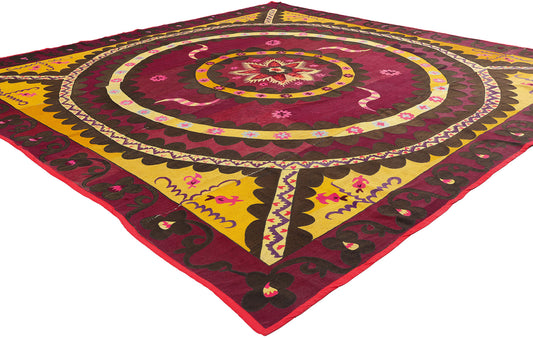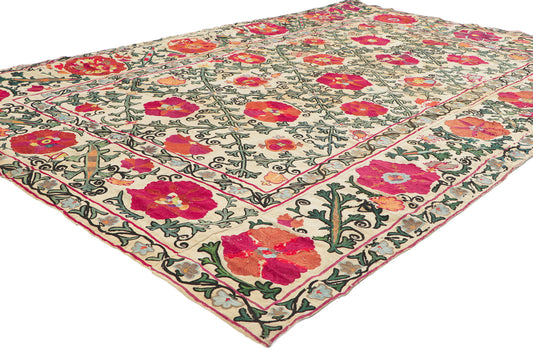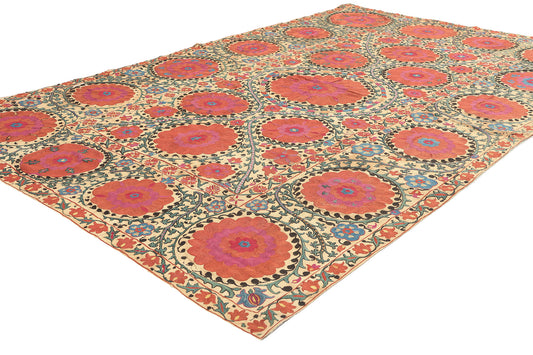The Legacy of Uzbek Carpets and Rugs
Since the Great Silk Road was a cultural crossroads, antique Uzbek rugs are a fusion of various traditions and symbols across the centuries. As a result, Uzbekistan rugs and Suzani textiles represent the artistic contributions, religious imagery, and antique weaving techniques of Turkic tribes, ancient Iranians, Chinese, Arabs, and Russians. This makes them unique among the antique rug world, as ancient Uzbek weavers had the opportunity to encounter many more weaving traditions, specialty dyes, and unique motifs than other rug makers.
Browse the Uzbek and Suzani textiles for sale in the Esmaili Rugs collections for the best representation of these cultural designs.
Styling & Collecting Uzbek Carpets and Suzani Textiles
Uzbek designs are the ideal choice for designers, collectors, and cultural enthusiasts, as they offer versatile rugs and wall hangings with an eclectic, heritage-inspired aesthetic. The appeal of these pieces lies in both their decorative artistry and historical resonance.
Suzani Textiles: Embroidered Masterpieces
The origins of Suzani needlework can be traced back 150–200 years, but are actually rooted in deeper history. These textiles are hard to track because most of them were created for domestic use and rarely appear in trade records. The Suzani textiles for sale today carry the lineage of personal, family-centered artistry.
Rather than being divided by Western or Eastern influences, Suzani textiles are categorized by regional centers such as Bukhara, Samarkand, and Tashkent, each known for distinctive stitching styles and color palettes. Their motifs draw from Persian and Central Asian symbolism, including sun discs, vines, tulips, and pomegranates.
Why Choose Esmaili Rugs
Esmaili Rugs is the number-one choice for collectors, architects, and designers because we stock the largest collection of rare antique and vintage carpets from around the world. Our team has decades of experience sourcing Uzbek and Suzani textiles to curate a museum-worthy collection of Central Asian works. Schedule a personalized consultation with our expert team to discuss your design needs.
Revival of Silk and Suzani Production
In the late 18th century, there was a revival of Suzani and Uzbek carpet production under the Emirate of Bukhara. New mulberry trees and silk weavers from Merv revitalized the industry, and Suzani weaving flourished. Many of the Uzbekistan rugs from this era are preserved in museums and private collections. At Esmaili Rugs, we feature a variety of Suzani textiles and embroidered panels that serve as both practical and ceremonial works of art.
Motifs and Symbolism in Uzbek Textiles
Uzbek rug motifs were heavily influenced by Persian boteh, Turkish tulips, Buddhist lotuses, and Greek vine scrolls. You’ll also find a variety of bold archaic motifs that are tied to celestial worship and fertility, specifically in Eastern Suzani designs. However, all varieties of Uzbek carpets feature themes of life, survival, continuity, and cultural resilience.
Shop Antique Uzbek Carpets & Suzani Textiles Here
Esmaili Rugs selects only the finest rugs and carpets for our collection. Each Uzbek piece in our store is a timeless heirloom woven with history and meaning. Choose Esmaili Rugs to shop rare acquisitions, explore rug renewal services, or seek our guidance for rug consignment.

